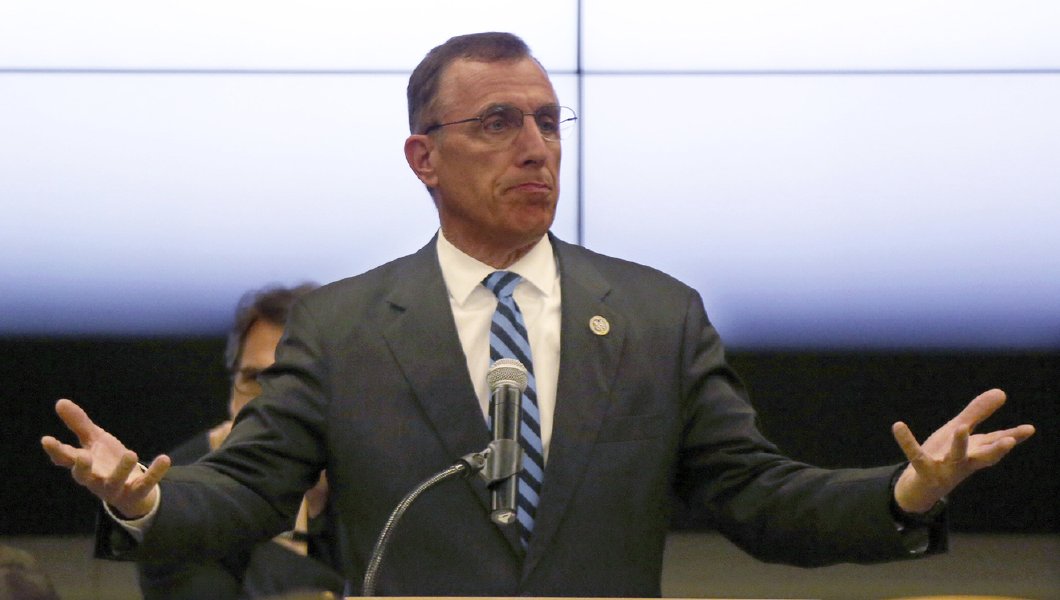
(10-23-17) I’ve always believed what my friend Bryan Stevenson (the hero of my book, Circumstantial Evidence) wrote in his New York Times bestselling book, Just Mercy: A Story of Justice and Redemption.
“Each of us is more than the worst thing we’ve ever done.”
Which brings us to the case of fallen Pennsylvania Republican Rep. Tim Murphy, whose last day in office was last Friday.
Many disagreed with the changes he wanted to institute and were offended by his often arrogant manner, but even his most adamant political enemies must acknowledge that after the Sandy Hook Elementary School shootings in 2012, he emerged as the most influential voice in Congress when it came to demanding changes in our mental health system.
It became his cause and he was doggedly determined to make mental health and substance abuse more of a priority in our federal government. Getting his Helping Families In Mental Health Crisis Act signed into law was a major accomplishment, especially in today’s political climate. Democrats, many disability groups and some mental health organizations opposed his calls for greater use of Assisted Outpatient Treatment, getting rid of the IMD 16-bed exclusion, limiting the power of Protection and Advocacy (PAIMI) groups, and modifying HIPAA to give caregivers more access. By the time, his bill was signed into law last year during the lame duck session, it had been significantly watered down. But compromise is an essential part of governing.
What’s important to remember is that without Rep. Murphy’s pushing, it’s highly unlikely Congress would have passed any major mental health legislation. I recall one of his then-peers remarking during a public meeting that every time he saw Murphy, all the 15- year veteran wanted to discuss was mental health.
His biggest achievement was creating an Assistant Secretary of Mental Health and Substance Abuse inside the Department of Health and Human Services and the creation of a special advisory commission that includes 14 non-federal members to advise Congress. (Yes, I’m bias because I am on it.) That commission’s job is to bring together the eight federal agencies that administer more than a hundred mental health and substance abuse programs and get them to begin coordinating their efforts – no small effort but an important one.
Only a few weeks before the scandal that abruptly ended Murphy’s political career, he introduced budget amendments that called for $107 million in additional funding for various evidence based federal mental health programs.
His exit from Congress came quickly. On Sept 6th, he was forced to admit publicly that he had engaged in an extramarital affair with a married woman half his age. Next came an embarrassing text message that claimed he had urged the woman to have an abortion during an unfounded pregnancy scare despite his staunch anti-abortion public face in his largely Catholic district. An internal memo from his chief of staff accusing him of verbally abusing his congressional staff came next, followed by other staff complaints, leading him to voluntarily resign. His final day was this past Friday.
Washington rubs its hands with glee whenever a powerful politician falls, especially when his wounds are self-inflicted and reveal hypocrisy. But that relish is quickly replaced by gossip about who will fill the vacuum.
Sadly in Murphy’s case, there is no obvious mental health champion eager to become that standard-bearer. In the House, several members have long supported mental health issues, but none has made mental illness a top priority in the same way that Murphy did. In the Senate, Senators Chris Murphy (D.-Conn.) and Bill Cassidy (R-La.) pushed Murphy’s bill, but Sen. Murphy is becoming better known for his fight against the gun industry than his mental health reform work and Sen. Cassidy lost credibility with mental health groups when he sponsored a failed Trumpcare version 2.0. with Sen. Lindsey Graham (R-S.C.)
The embarrassing departure of HHS Secretary Tom Price, who had listed mental health as his third priority after childhood obesity and the opioid crisis, further muddies the water since there is no guarantee that the Trump Administration will appoint a new secretary with any knowledge or interest in mental health.
Thankfully, Assistant Secretary Dr. Elinore F. McCance-Katz is proving to be a godsend. She’s smart, determined, self-effacing and someone of unquestionable character – qualities sorely lacking in much of Washington today.



